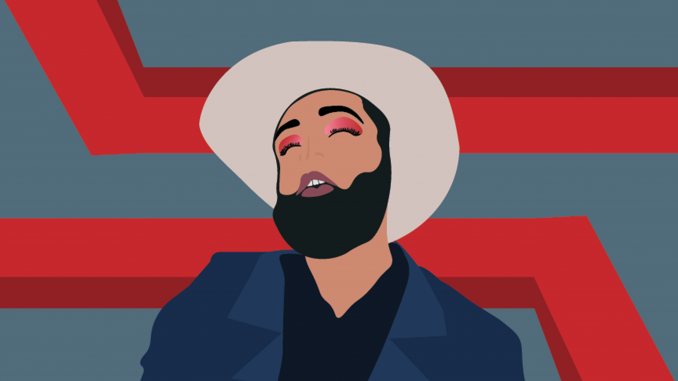

My first college party was a complete nightmare.
Fashion is an extension of my personality. When people see my headbands, secondhand necklaces and offbeat cardigans, they’re getting an idea of who I am.
I’d spent the whole day picking outfits to wear, shuffling through my favorite clothes to find the best look. It was so important to me — a freshman desperately seeking new friends — to have everyone get a glimpse of my personality as I walked through the door of the party.
Instead, I was met with an ocean of judgmental stares. Every set of eyes in the room pierced through my self-esteem, every chance at finding a new friend sinking in a single moment. One boy even started playing with my headband on my head, making me feel like an animal at a petting zoo.
I realized my self-expression was just a circus show for everyone else.
For the rest of my freshman year, I found myself overthinking every outfit I’d pick out. Was it masculine enough? Too masculine? Too in-between?
What does masculinity even mean?
From a young age, I was taught that masculinity means strength, power and emotionlessness. In contrast, I was always fragile, timid and colorful.
While I’ve always been one to forge my own path, my gender constrained me to a strict, structured definition of what I was supposed to be. I still remember family members hushed voices telling me, “Boys don’t wear purple,” but purple’s my favorite color.
It hurts spending so much time trying to appeal to unattainable, incarcerating ideals of gender roles when all you want to do is to be yourself. All my life, the men around me had it figured out. They fulfilled every requirement on the checklist of hegemonic masculinity: they were assertive, braggadocios and could shop for themselves without stopping once in the women’s section.
So what was my problem?
After all, I’ve never felt this way with my friends, most of whom are women. With them, I felt free to be myself without being presented with a rubric to follow.
One of those friends, my roommate Matia, always supported my self-expression. She’s brash, direct and open, never yielding to what others think of her.
Matia’s the type of person to wear Crocs to class at the Fox School of Business and not give a damn that everyone else is in suits and dresses. She lives in her own skin — and clothing — unabashedly, and she’s taught me to do the same.
This Halloween, while searching for costumes, I told Matia I wanted to wear something more feminine and expressive this year, but I was terrified to do so because of that party my freshman year. Her immediate response was, “Who cares what anyone else thinks?”
When she said that, the words somehow clicked for me, and I realized I was not the issue.
Days later, in preparation for a costume party, I asked Matia if she could do my makeup — something I’ve never done before. Immediately, she offered me some of her favorite eyeshadows.
When I looked in the mirror that night, eyelids adorned in scarlet red, I couldn’t help but feel comfortable, alive in my own skin and most importantly, beautiful. The man I saw in my reflection was self-assured, glamorous and powerful, a version of myself unfiltered by masculine constraints.
That night, I felt like me.
Selfies of me in my eyeshadow littered every corner of my social media — I wasn’t going to rest until every person saw me the way I wanted them to.
For so long, I’ve been taught that masculinity and femininity are mutually exclusive, that I had to live and dress a certain way.
But in that moment, I defined masculinity for myself.
Masculinity is dressing however you’d like, regardless of what gendered clothing section it comes from. It’s unapologetically applying makeup and then walking into a party.
But most importantly, masculinity is whatever the hell I want it to mean.


Be the first to comment